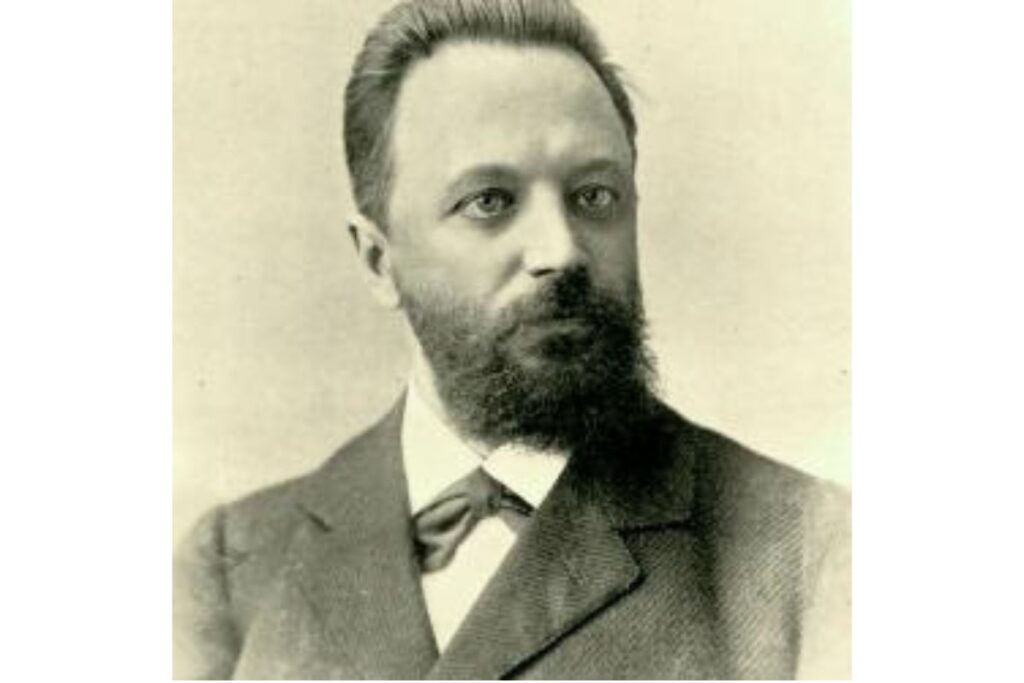Mikhail Ivanovich Chigorin was a chess player from the Russian Empire who lived from 1850 to 1908.
He was born in Gatchina, a small city near St. Petersburg, and at the age of 9, he had to live in an orphanage since both of his parents were dead.
Chigorin became serious about chess while at the institute and went on to become a world-class player.
He played two World Championship matches against Wilhelm Steinitz, losing both times.
Chigorin is considered the last great player of the Romantic chess style and served as a major source of inspiration for the “Soviet chess school,” which dominated the chess world in the middle and latter parts of the 20th century.
Playing Style
Chigorin’s style was tactical, aggressive, and imaginative, and he was known to play unique openings.
He invented the Chigorin Defense, which is a chess opening that begins with the moves 1.d4 d5 2.c4 Nc6.
This opening is still used today, and its current revival owes much to the efforts of Alexander Morozevich, who has championed the opening both in play and in his book – The Chigorin Defence According To Morozevich (published 2007).
Chigorin also invented the opening line 1.e4 e6 2.Qe2 in the French Defense, which is now generally regarded as a forerunner of King’s Indian setups, but Chigorin also played it with other ideas (such as b2–b3) in mind.
Career Achievements
Chigorin won the first three All-Russian tournaments from 1899-1903, which helped cement his legacy as the strongest Russian master to that time.
He tied for first place in the 1889 New York tournament and won the 1895 Hastings tournament.
In Chigorin’s brilliant round-one win in the 1892 world championship match, he employs his beloved Evans gambit and gets great compensation for the gambit pawn.
He establishes an octopus knight on d6 before sacrificing it for a powerful attack that keeps Steinitz’s king on the sixth rank for the remainder of the game.
Legacy
Chigorin continued teaching, lecturing, and playing until his final days. He died in Lublin, Congress Poland, at the age of 57.
Chigorin is remembered as one of the greatest chess players of all time and a pioneer of modern chess theory.
His style of play was unique and influential, and his contributions to the game continue to be studied and appreciated by chess enthusiasts around the world.
Wife & Family
Mikhail Ivanovich Chigorin, the renowned chess player from the Russian Empire, was married twice and had one daughter named Olga.
Unfortunately, specific details about his wives’ names or personal lives are not readily available in the provided sources. However, it is known that Chigorin’s only grandson passed away in the USA in 2011.
Chigorin’s personal life remains relatively private, with more focus on his significant contributions to the world of chess.Chigorin’s childhood was marked by hardship and deprivation, having lost his parents at an early age and being raised in the Gatchino Orphanage Institute.
Despite these challenges, he went on to become a prominent figure in the world of chess, leaving a lasting legacy as a pioneer of modern chess theory and a major source of inspiration for the “Soviet chess school”.
Chigorin’s impact on the popularization of chess in Russia was substantial. He gave lectures, wrote magazine articles and chess columns, and founded a chess club in Saint Petersburg.
His influence extended beyond his playing career, as he made significant efforts to establish a chess association, which succeeded a few years after his passing.
Through his original talent, lively games, and prolific teachings, Chigorin is regarded as the founder of the “School of chess” in Russia.


